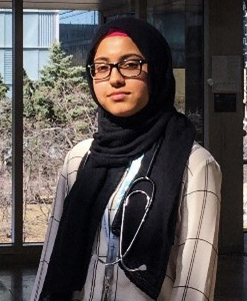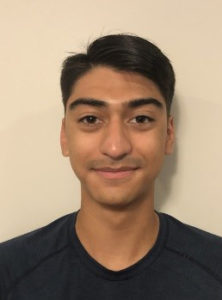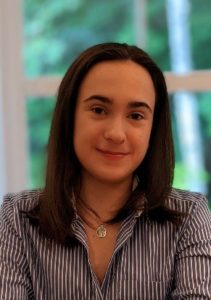Supported by a York Science Scholars Award (YSSA), 19 top first-year students participated in their first summer research experience as university students this year.
The YSSA program provides awards of $10,000 to high-achieving, passionate science students entering the Faculty of Science. Half of the award is an entrance scholarship and the other half pays for a summer research position following the first year of study. The research opportunity has proven to be a positive experience for everyone involved, supervisors and students alike.

“I consider training them an investment for the future,” said chemistry Professor Sergey Krylov, who accepted three YSSA students into his lab this past summer. “Not only did these students learn a lot, but they also contributed significantly to the research projects in which they were involved. I’d be happy to take new students through this program next summer. I’d be even more happy to have the same students return to the lab and apply their knowledge from their first summer. That would be a ‘return on investment.’”
One of the students in Krylov’s lab was Ailiya Rizwan, who went on to receive second prize for her oral presentation, “Single-cell analysis of cell population heterogeneity using CRRC for the development of chemoresistance biomarkers,” at the Faculty of Science’s NSERC Summer Research Conference.
YSSA recipients Ethan Sooklal, Claire Del Zotto and Elizaveta Yakubovskaya also swept up half of the awards for poster presentations at the NSERC Summer Research Conference.
Sooklal’s summer research focused on using fungus to investigate the interactions and localization of three major proteins involved in driving the circadian rhythm in eukaryotes. For him, the best parts of the research position were experiencing the research process and learning new skills outside of the classroom.

“I really enjoyed the process of working on the research project, seeing its progression, gathering the results and sharing them with my peers at the end of the summer,” said Sooklal. “This experience, above all, strengthened my laboratory techniques and skills. It also gave me the opportunity to learn outside a classroom setting, which was not only refreshing, but also much more impactful.”
His supervisors, biology Professor Patricia Lakin-Thomas and PhD student Rosa Eskandari, also touted the program as an opportunity for the lab to recruit an enthusiastic and highly competent student assistant. In fact, Sooklal has been offered the opportunity to continue working with them as a Research at York (RAY) student in the fall and winter terms.
“Ethan distinguished himself in our lab by his fantastic work, excellent laboratory style, tremendous help and neat results,” said Eskandari.

Yakubovskaya, one of the other poster presentation winners, was among three YSSA students working with Professor Andrew Skelton in the Department of Mathematics & Statistics this summer. Her research project involved creating evidence-based modules to help first-year students build their study skills – specifically time-management – to the level necessary to succeed in university math.
“I really enjoyed how this research project broadened my understanding of education as a field and as a science,” she said. “The experience gave me an opportunity to practise and refine skills that I had developed in first year. Specifically, this project helped me improve my research and science communication skills.”
Skelton was impressed by Yakubovskaya and the other YSSA students and he felt they made important contributions to his team’s research.
“I was continually floored by the high calibre of these students and the substantial impact they had on our project,” he said. “I strongly believe that the project would not have been successful without their contributions.”
The program is now into its fourth year with another cohort of YSSA students just beginning their studies at York Science. More information about the YSSA program is available on the Faculty of Science website.
To learn more about Research & Innovation at York: follow us at @YUResearch; watch the animated video which profiles current research strengths and areas of opportunity, such as artificial intelligence and Indigenous futurities; and see the snapshot infographic, a glimpse of the year’s successes.
